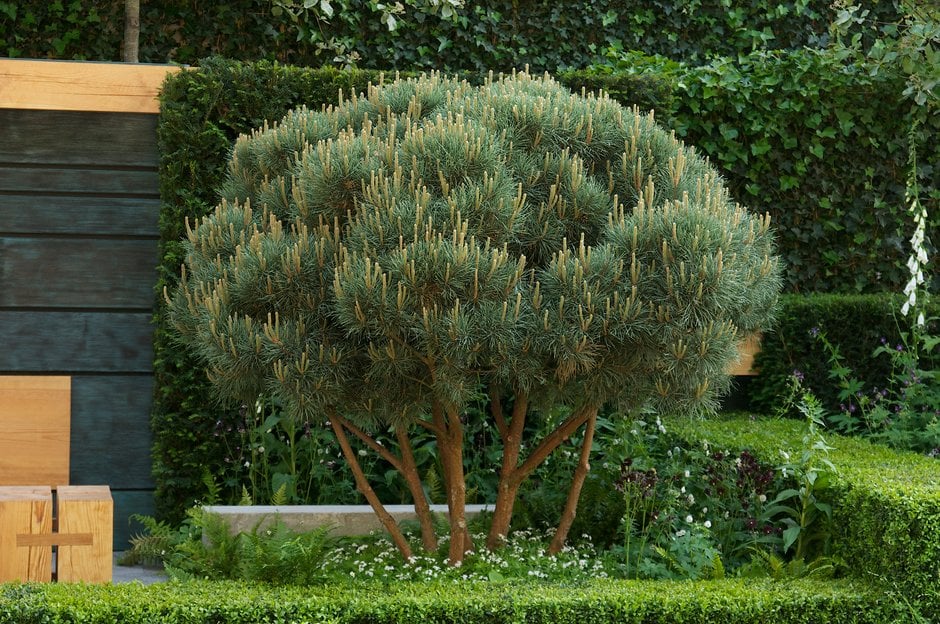Not the plant you're looking for? Search over 300,000 plants
ShrubsConifers
Size
Ultimate height
2.5–4 metresTime to ultimate height
20–50 yearsUltimate spread
4–8 metresGrowing conditions
Chalk
Clay
Loam
Sand
Moisture
Well–drainedpH
Acid, Alkaline, NeutralColour & scent
| Stem | Flower | Foliage | Fruit | |
| Spring | Red Brown | Blue Green | Brown | |
|---|---|---|---|---|
| Summer | Red Brown | Blue Green | Brown | |
| Autumn | Red Brown | Blue Green | Brown | |
| Winter | Red Brown | Blue Green | Brown |
Position
- Full sun
Aspect
South–facing or North–facing or West–facing or East–facing
Exposure
Exposed or ShelteredDrought resistance
Yes Hardiness
H7Botanical details
- Family
- Pinaceae
- Native to GB / Ireland
- No
- Foliage
- Evergreen
- Habit
- Bushy
- Genus
Pinus can be shrubs or large, evergreen trees, some species with attractive bark, developing an irregular outline with age and bearing long needle-like leaves in bundles of 2, 3 or 5; conspicuous cones may fall or remain on the tree for years
- Name status
Accepted
How to grow
Cultivation
Grow in any well-drained soil in full sun
Propagation
Propagate by grafting in late winter
Suggested planting locations and garden types
- Coastal
- Cottage and informal garden
- Flower borders and beds
Pruning
No pruning required
Pests
May be susceptible to adelgids, conifer aphid, sawfly larvae, and pine shoot moth
Diseases
May be susceptible to honey fungus and needle cast diseases
Get involved
The RHS is the UK’s gardening charity, helping people and plants to grow - nurturing a healthier, happier world, one person and one plant at a time.
